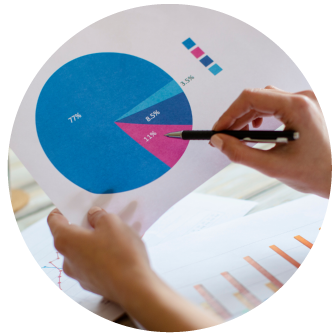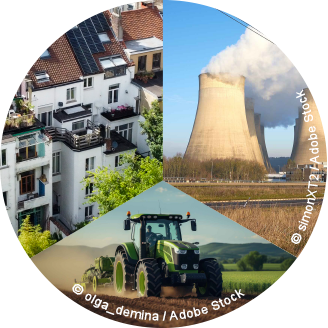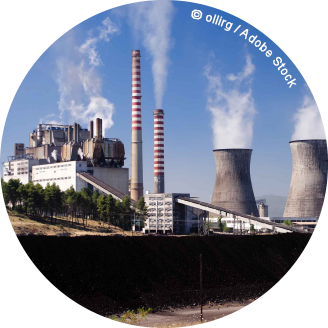In response to the European Climate Law and the need for stronger climate action, the European Commission reviewed the 2014 F-gas Regulation and, on 7 April 2022, proposed a new regulation to the European Parliament and the Council of the European Union.
Building on the success of its predecessor, the F-gas Regulation (EU) 2024/573 was adopted on 7 February 2024 and started to apply on 11 March 2024.
Key measures of the new F-gas Regulation:
 Reducing hydrofluorocarbons
Reducing hydrofluorocarbonsThe quota system generates a steeper reduction in the amounts that importers and producers may place on the EU market, and in 2050, HFCs will be phased out in the EU.
 Expanding the quota system
Expanding the quota systemHFCs used in metered dose inhalers have been integrated into the quota system. Additional prohibitions on F-gas equipment, products and use of F-gases will apply in the future.
 Stricter rules to prevent emissions
Stricter rules to prevent emissionsThe Regulation covers additional equipment and gases, expanding measures to prevent leakage during transportation, installation, servicing, and disposal of equipment and products.
 Facilitating better monitoring
Facilitating better monitoringMore digitalisation and electronic automation of custom control will allow enhanced enforcement and monitoring in the Member States and combat illegal trade.
 Capping EU production of HFCs
Capping EU production of HFCsStarting in 2025, producers will receive rights equivalent to 60% of their average annual production from 2011 to 2013. This rate will decline to 15% by 2036.

These new rules are the most ambitious in the world. They will avoid the use of planet-warming gases in products such as refrigeration, heat pumps, air conditioning equipment and aerosol sprays, making them more climate-friendly. At the same time these rules will stimulate innovation and create new opportunities for EU industry, and citizens will benefit from the deployment of state-of-the-art technologies. The EU is also continuing its role as a leader in the implementation of the Montreal Protocol, and setting a positive example for partners around the world.

